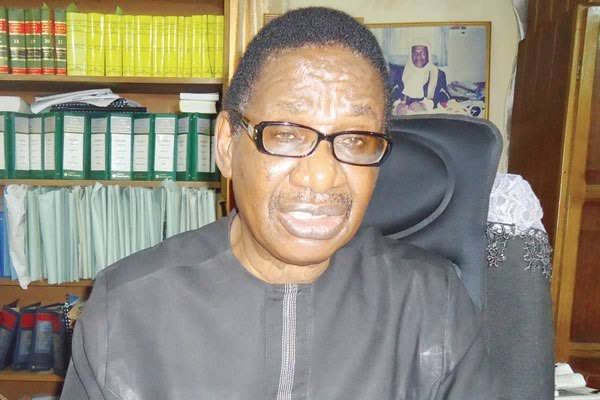By Osaze Omoragbon
The Chairman of the Presidential Advisory Council on Anti-Corruption (PACAC), Professor Itsey Sagay (SAN) has advocated for a return to the golden age of the judiciary where learned and courageous jurists dispensed justice without fear or favour. The golden era, according to Sagay, was in the 1980s and early 1990s when Nigeria had eminent jurists such as Justices kayode Eso, Chukwudifu Oputa, Otutu Obaseki, Mohammed Bello, Adolphous Karibe-Whyte, and Chukwunweike Idigbe among others. These jurists brought pride to the nation such that “we didn’t have to look to the west for judicial leadership” Sagay says. Sagay made these known at a roundtable webinar on Jurisprudence and Philosophy of Judgments organised by PACAC.
 According to Sagay the judiciary has regressed and called for urgent steps to be taken to remedy the situation. “Corruption used to be an anathema in the judiciary. In the past, no one dared go into a judge’s chamber to offer bribes…..we must ensure that every judgment should pass the test of justice” he says. He advised jurists to steer clear of corrupt practices while decrying the rise in unreasoned judgments such as the Zamfara and Bayelsa elections cases that subverted the will of the electorates.
According to Sagay the judiciary has regressed and called for urgent steps to be taken to remedy the situation. “Corruption used to be an anathema in the judiciary. In the past, no one dared go into a judge’s chamber to offer bribes…..we must ensure that every judgment should pass the test of justice” he says. He advised jurists to steer clear of corrupt practices while decrying the rise in unreasoned judgments such as the Zamfara and Bayelsa elections cases that subverted the will of the electorates.
Delivering the Lead paper, Yemi Candide-Johnson (SAN), called for a reform of the process of selection and elevation of judges. In his reasoning, the moral and intellectual capacity of judges determines the quality of judgments. A carefully designed selection process, he says, is important for the administration of justice and urged that laid down rules should be followed when appointing judges. Judicial performance is relevant to promotion of judges while “the current opaque system defeats legitimate public interest”. Candide-Johnson calls for a de-politicisation of the selection process such that political parties do not have an upper hand in selecting judges. Holding public hearings, according to Johnson, will lend legitimacy to the selection process saying the judicial council which selects judges should not be a club where judges reward themselves. Outsides, in his view, should also be made part of those who select judges.
In her contribution, President of the Court of Appeal, Justice Monica Dongban-Mensem said it will be difficult to completely remove politics from the process of selection of judges. Elected officials, she says, have a legitimate right to add their voices to the selection process. As representatives of their people, they can clamour for people from their regions or constituencies to be selected as judges. “We need to take into consideration our socio-cultural and legal realities when advocating for reform of the selection process” she says. Judges, according to her, should be given the opportunity to learn on the job just as they cannot have expertise in all areas of jurisprudence.


